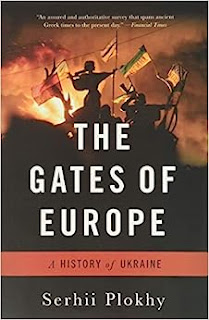from The Gates of Europe: A History of Ukraine by Serhii Plokhy:
As often happens with former colonial administrators, a strong inferiority complex afflicted the Kyiv elites vis-à-vis their Russian counterparts, and they initially followed models developed in Russia to deal with their own political, social, and cultural challenges. It took them a while to realize that the Russian models did not work in Ukraine. Ukraine was different. Nowhere was this clearer than in the Ukrainian religious scene. By 1922, the Ukrainian Orthodox Church, which accounted for 60 percent of all Orthodox communities in the former Soviet Union, had split four ways: there were Greek Catholics who had emerged from the underground, Orthodox who remained under Moscow’s jurisdiction, adherents of an independent Ukrainian Orthodox Kyiv Patriachate, and, finally, the Autocephalous (self-ruling) Ukrainian Orthodox Church, which had its roots in the 1920 and also did not recognize the authority of Moscow. President Kravchuk’s efforts to turn the Kyiv Patriarchate into a de facto state church, as Russia had done with the Moscow Patriarchate, failed. So did President Kuchma’s attempts to do the same with the Ukrainian branch of the Orthodox Church of the Moscow Patriarchate.
The Ukrainian scene remained as pluralistic at the turn of the twenty-first century as it had been after the declaration of independence. If anything, it became even more diverse. Eventually, all political forces had to accept the reality that Russian political solutions generally did not work in Ukraine. President Kuchma explained why in a book published in 2004, close to the end of his second term in office. The title was telling indeed: Ukraine Is Not Russia.

No comments:
Post a Comment